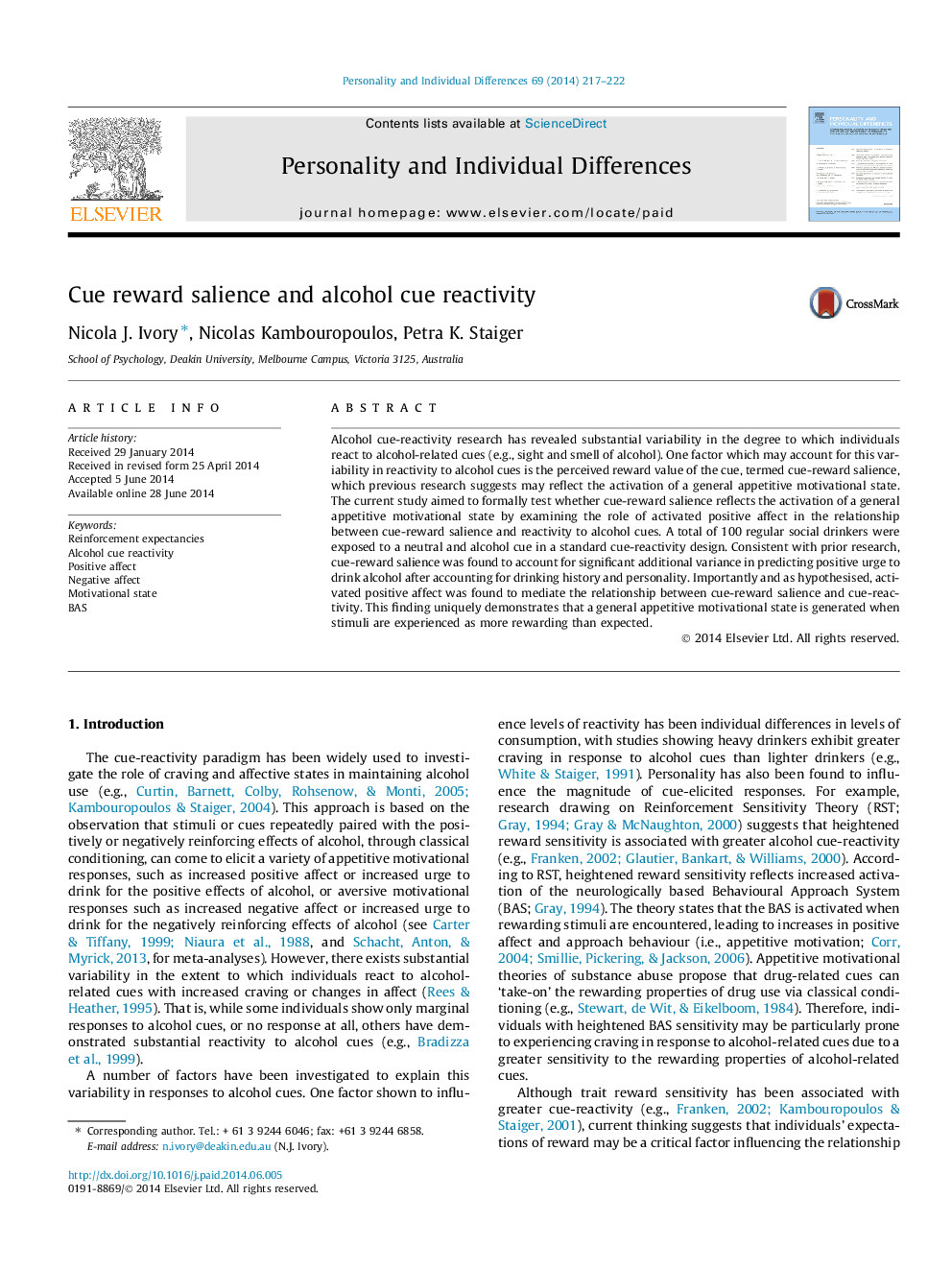| Article ID | Journal | Published Year | Pages | File Type |
|---|---|---|---|---|
| 890431 | Personality and Individual Differences | 2014 | 6 Pages |
•We found cue reward salience predicted cue-elicited positive urge to drink alcohol.•Cue reward salience predicted the most variance in positive urge to drink.•Positive affect mediated association between cue reward salience and cue reactivity.•Results support an appetitive motivational account of alcohol cue reactivity.
Alcohol cue-reactivity research has revealed substantial variability in the degree to which individuals react to alcohol-related cues (e.g., sight and smell of alcohol). One factor which may account for this variability in reactivity to alcohol cues is the perceived reward value of the cue, termed cue-reward salience, which previous research suggests may reflect the activation of a general appetitive motivational state. The current study aimed to formally test whether cue-reward salience reflects the activation of a general appetitive motivational state by examining the role of activated positive affect in the relationship between cue-reward salience and reactivity to alcohol cues. A total of 100 regular social drinkers were exposed to a neutral and alcohol cue in a standard cue-reactivity design. Consistent with prior research, cue-reward salience was found to account for significant additional variance in predicting positive urge to drink alcohol after accounting for drinking history and personality. Importantly and as hypothesised, activated positive affect was found to mediate the relationship between cue-reward salience and cue-reactivity. This finding uniquely demonstrates that a general appetitive motivational state is generated when stimuli are experienced as more rewarding than expected.
